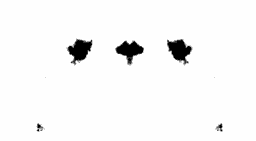Hacking custom GIFs onto an LED Mask with mitmproxy
This Halloween I went as Rorschach, the Watchmen 'hero'. I don't have much of a connection to the character; it was mostly an excuse to play with an LCD face mask I bought a few weeks earlier.

Since I was on a time crunch to implement the face mask in time for a Halloween party I was attending, I decided to go for the simplest approach: use the official Android app to upload my custom GIF onto the mask.
Fortunately, through my day job I've been introduced to a number of tools that help provide the shims necessary to make this happen, including:
- mitmproxy to capture and inspect Bluetooth packets
- apktool to decompile the "official" Android app to hunt for interesting strings
- LightBlue to test sending Bluetooth commands to a device
- Wireshark to evaluate sending Bluetooth packets
The actual code I had to write ended up being an extremely small mitmproxy add-on:
def response(flow):
if flow.request.url.endswith('.gif'):
# Brute force. Replace all .gif images the app downloads with my GIF
img = open('rorschach-mask.gif', 'rb').read()
flow.response.content = img
It was a fun exercise to get an animated GIF onto a device that clearly didn't want to be hacked like this!

